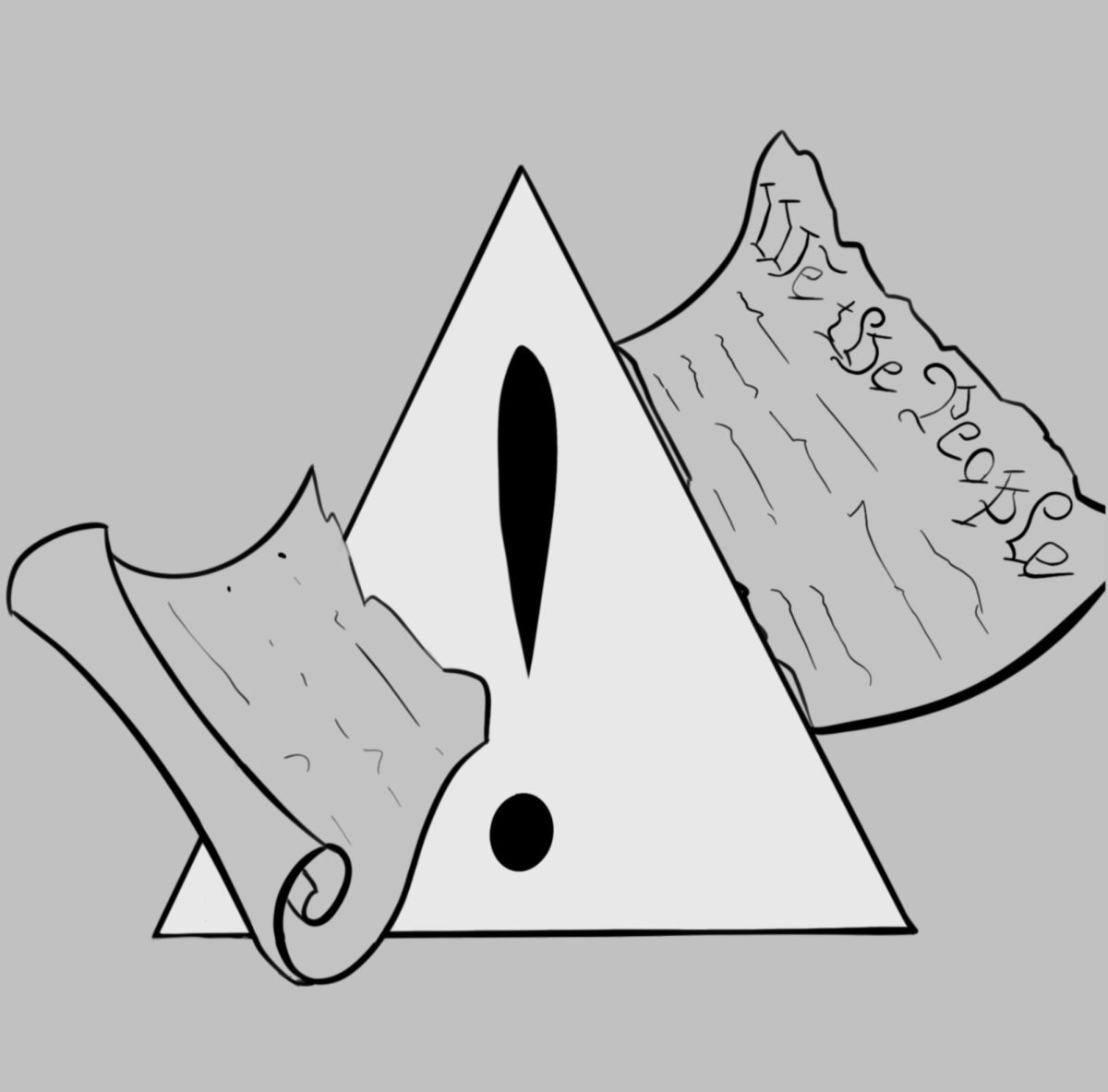When the Founding Fathers wrote the Constitution of the United States, they envisioned a government divided among branches, held in a system of checks and balances to protect the public against the tyranny and oppression from the kings of old.
Today, as President Donald Trump pushes his second presidency to the forefront of global politics, his administration is eroding the century-old principles that many have relied on, brute forcing his administration through an agenda that defies the Constitution. As Congress continues to serve under Trump’s influence, many people, from experts to news organizations, question whether or not the nation is in a constitutional crisis.
As defined by the Oxford Dictionary, a constitutional crisis is a situation in which a major political dispute cannot be clearly resolved based on the particular government’s constitution or established practices. Past examples include the American Civil War, when states seceded from the Union over the issue of slavery, or the 1993 Russian Constitutional Crisis, when then-President Boris Yeltsin fought with parliament, leading to military intervention that dissolved the political body. With each new addition to Trump’s agenda, it seems as though the U.S. is leaning toward a new constitutional crisis of its own.
In the first three months of his second term, Trump issued a series of executive orders that generated significant controversy. Some of his orders include the ending of birthright citizenship for children of non-U.S. citizens, or permanent residents, and the designation of cartels as foreign terror organizations. While the former is being fought in the Supreme Court, the latter is actively being used as justification for deporting individuals suspected of being affiliated with a transnational criminal organization known as Tren de Aragua without due process.
As the administration continues to fight against the judiciary and the public, the president has continued to bulldoze past decades of precedent to achieve his agenda. Chief among these policies are his pursuits to dismantle the U.S. Agency for International Development and the Department of Education in the name of government efficiency, efforts spearheaded by Elon Musk.
Although the U.S. might not be in a constitutional crisis, this is the closest it has been to one in modern times, barring wartime circumstances. In the past, various presidents have run afoul of the Constitution in the name of national security and political agendas but were usually minimal in violating its principles.
During the American Civil War, Abraham Lincoln expanded his war powers, suspended habeas corpus and arrested and imprisoned thousands of suspected Confederate sympathizers in his war effort to reunite the Union. Franklin D. Roosevelt chugged through the Great Depression with his New Deal agenda, expanding executive powers to provide relief to the nation. In the Vietnam War, Lyndon B. Johnson deployed troops into Vietnam without a formal declaration from Congress. All of these presidents share the same goal: that they violated some principle of the Constitution for their objectives.
Yet, none of these administrations have come close to what the 47th President is doing today.
Trump has employed a brute force method that consolidates more power to the executive branch, breaking up the delicate checks and balances established in 1776. As the government remains under Republican control, Trump has sought to use as much time as he can before the midterms to ensure that his agenda moves forward. From firing various inspector generals to cutting and downsizing agencies like the Voice of America and the National Nuclear Security Administration, the president has slowly but surely chipped away at the various mechanisms meant to check his power without Congressional approval.
As the Republican powerhouse continues to defy norms and avoid accountability even in the face of national security, the people must be willing to stand up and fight back politically against the institution. Even the most powerful leaders can be held accountable by the people, whether through voting them out, petitioning their removal or nonviolently protesting their policies through civil disobedience.
Although the courts are doing their best to keep the executive branch limited to the Constitution, Congress must be more vigilant in holding their top party leaders accountable. The Republican party, in particular, should not stand for the Trump administration’s actions. Rather, they should be taking decisive action to curtail some of his policies and hold his office accountable for his dangerous actions.
It should not take a politician’s closing term to speak out, nor should it take months after the harsh effects of the nation to realize their elected leaders’ folly. The public is an integral pillar of the nation’s democracy, and if they do not use this to their advantage, America will be susceptible to tyranny and oppression.


